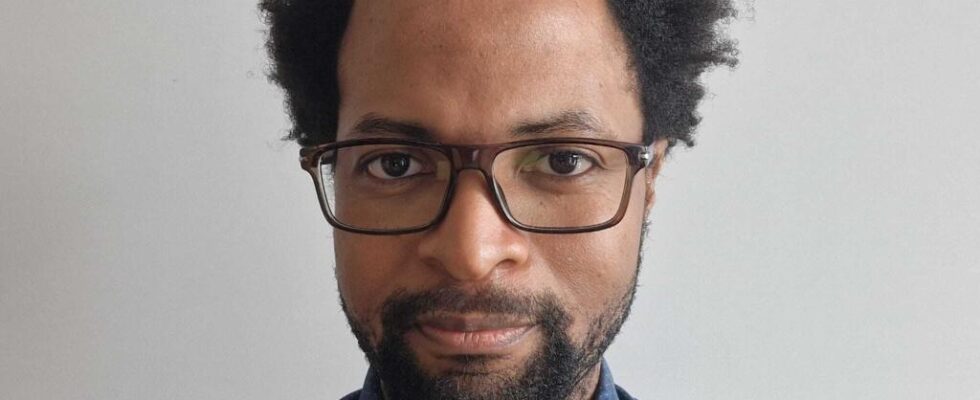Member of the citizen movement Stand up for Cameroon, Remi Tassing, engineer, devotes part of his free time to studying the awarding of public contracts in Cameroon. A solitary job that he readily describes as “ ungrateful and austere », based on documents posted online by Cameroonian institutions. It front of ” anomalies » spotted and denounced on the social network X, he dreams of collective awareness. On June 1, 2024, he published a list of 203 agents, contract workers and civil servants, beneficiaries of public contracts in his country. Interview.
RFI: Remi Tassing, how did you become interested in public markets? ?
Remi Tassing : As part of the Stand Up for Cameroon citizen movement, we work on issues of governance and corruption. For my part, I developed the Katika platform in 2018 on which I, for example, recorded incidents in the English-speaking regions.
In the frame of “Covid Gate”when the International Monetary Fund (IMF) demanded Cameroon the publication of the list of budget beneficiaries, I began to take an interest in public procurement. It’s not my job. So I learned about the Public Procurement Code, the Code of Transparency and Good Governance in the Management of Public Finances, an important document, but unfortunately one that is not respected.
Cameroon has the difficulties of a poor country. But when we look at the budgets, the amounts, we ask ourselves “where is the money going?” “. With public procurement, there is a little traceability, certainly insufficient, but part of the iceberg is visible.
How do you work?
On this subject, I work alone, very early in the morning, around 4 or 5 a.m., or in the evening and on weekends, outside of my working hours. I work only from accessible documents, posted online on the website of the Public Procurement Regulatory Agency (ARMP): calls for tenders, awards, press releases. I cross-reference the information with data from the Cameroonian tax services. I identify anomalies, cases of overbilling and conflicts of interest and I publish on X, indicating names, contact details and identifiers as precisely as possible.
This is not the work of a journalist, it is the work of a whistleblower. I provide journalists, NGOs, institutions with information, as detailed as possible, which I also indicate on the katika platformmore readable than the ARMP site.
What type of “anomalies” in the context of public procurement do you encounter?
I could talk about it all day. There are so many. One of the most recurring patterns is the purchase of vehicles at exorbitant prices. For example, a university rector launches a call for tenders under an “emergency” procedure for a vehicle costing 100 million CFA francs. [environ 150 000 euros, NDLR]. In a country where some schools have no classrooms, some no toilets, it is indecent.
Another example: public contracts awarded to unknown companies, which do not declare income to the administration and do not pay taxes, or contracts awarded by local elected officials to companies… which belong to them. Once, I found a company benefiting from public contracts whose contact details were those of the RDPC [Rassemblement démocratique du Peuple Camerounais, parti majoritaire au Cameroun, NDLR]. This kind of case should spark a public outcry!
Who is taking over your alert work in Cameroon?
That’s what’s painful. It’s like a black hole. Institutions such as ministries, the Chamber of Accounts, the Consupe (Higher State Control), the CONAC (National Anti-Corruption Commission) and, of course, justice, in particular the TCS (Special Criminal Court) should take possession of these files. But almost nothing happens.
Journalists could take over more. But, in Cameroon, they work in a repressive context. Result: this does not provoke the expected reactions.
In our country, public markets are used to redistribute bonuses to members of the ruling party, the CPDM, through over-invoicing and kickbacks. This has been going on for years, but it has become disproportionate, out of control.
I do this alert work for my followers on my own scale. But I don’t have the time or energy to do this on a larger scale.
Do you contact the institutions yourself?
No, I tag [identifier numériquement sur Internet quelqu’un ou quelque chose, NDLR] the ministries and institutions concerned on X. I make the data available and I answer questions from journalists when they ask me. Recently, I released a list of 200 public agents and civil servants spotted in public markets. Census work over the last three years. And I keep finding…
In principle, in Cameroon, all public contracts worth more than 5 million CFA francs must be declared to the Public Procurement Regulatory Agency (ARMP), except in truly specific, minority cases. But, over time, I noticed that certain institutions never appear on the ARMP website: the Presidency of the Republic, the services attached to the presidency, the services of the Prime Minister, the Senate, the General assembly. However, these institutions should lead by example. Not all of their purchases are “defense secrets”, it seems to me.
Do you receive financial support for this work?
No, no organization supports me. And when private individuals offer contributions, I refer them to the Stand up for Cameroon movement.
